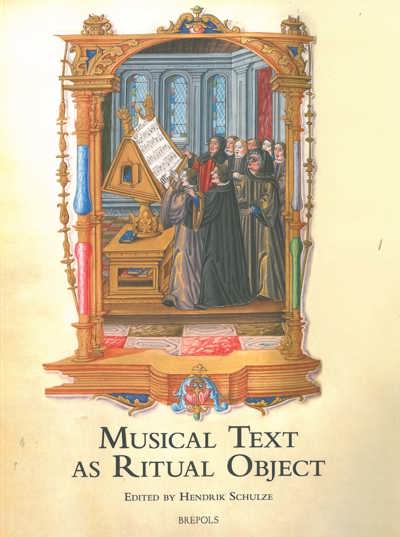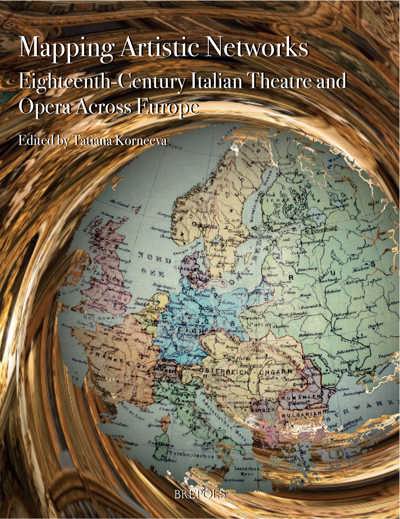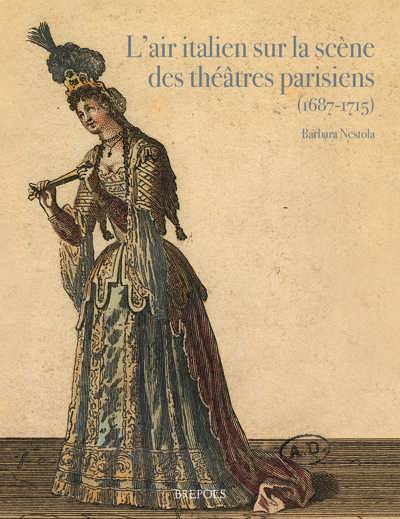
Mapping Artistic Networks: Eighteenth-Century Italian Theatre and Opera Across Europe
Tatiana Korneeva (ed)
- Pages: 232 p.
- Size:216 x 280 mm
- Illustrations:25 b/w, 12 col., 10 tables b/w., 10 maps b/w
- Language(s):English
- Publication Year:2022
- € 125,00 EXCL. VAT RETAIL PRICE
- ISBN: 978-2-503-58495-9
- Paperback
- Available
The collection of essays focuses on some of the key issues in the history of Italian theatre and opera.
“Arricchito da illustrazioni a colori e apparati sinottici, il volume offre un valido contributo alla ricostruzione di quella circolazione transnazionale di artisti, mecenati, oggetti e pratiche performative che si pone alle basi dell’identità europea settecentesca e che giunge in eredità fino ai nostri giorni.” (Gianluca Stefani, in Drammaturgia.it)
“(…) wurde mit diesem Sammelbd. ein erster wichtiger Schritt geleistet, der zahlreiche Ausgangspunkte für zukünftige interdisziplinäre Forschungsaktivitäten bietet.” (Ingeborg Zechner, in Quellen und Forschungen aus italienischen Archiven und Bibliotheken, 103, 2023, p. 717)
“The collection’s ambition and coherence are summarized in its title, while the authors’ methodologies are illuminated by Korneeva’s introduction. The collection of studies represents a distinct and multidisciplinary approach to the phenomenon of the Europe-wide circulation of Italian opera composers, writers, artists, and personnel (…) Particularly regarding Italian opera in Russia, the reader gains insights into histories and approaches to knowledge about the European fortunes of Italian dramma and commedia per musica.” (Franco Piperno, in Music & Letters, 14/02/2024, p. 131)
Tatiana Korneeva is assistant professor in Comparative Literature at the Freie Universität Berlin. Her research focuses on theatre, opera, and cultural studies in early modern and eighteenth-century Italy and Russia in comparative perspective. She has authored two books (ETS 2011; University of Toronto Press 2019) and edited two collections of essays (Brill 2016; Carocci 2018) on performing arts, politics, and public sphere in the early modern Europe.
Mapping Artistic Networks provides a new critical overview of the circulation of the Italian theatre and opera across Europe in the eighteenth century. Performed as an extension of imperial celebrations, coronations, weddings, and masquerades, Italian theatre and opera provided scripts for the representation of political power and became an expressive metonym for the Bourbon monarchs, Austrian Habsburgs, Saxon electors in Poland, Prussian rulers and Russian emperors. They employed theatre as a political tool that magnified their victories and fashioned their courts as theatre and made theatre part of their courts. From Munich to Vienna, from Madrid to St Petersburg, from Dresden to Stockholm, there was seldom a court that did not employ Italian-born artists, musicians, singers, and theatre engineers. The volume furnishes valuable information and substantive new analysis on both Italian plays and operas performed throughout various European courts and the mobility of theatre professionals. The essays critically assess how the italianità, the notion we use in the sense of the image of otherness that Europeans wished to assimilate and musical style, were defined but also challenged through the productions of Italian theatre and opera abroad and their encounters with national traditions. The collection aims to contribute to a broader discussion of cultural transfer and transmission of artistic practices in music and theatre, and migrations of artists and texts across the continent, while also exploring for the first time the East of Europe.
List of Illustrations
List of Tables
List of Musical Examples
Introduction: Italian Theatre Reverberated
Tatiana Korneeva
A Note on Transcription, Transliteration, and Translation
Part I. Itinerant Italians
Italian Singers on the Move: Networks, Social Support, and Contact with the Native Land during Senesino’s London Years
Melania Bucciarelli
The Italian Opera in Prague in the Eighteenth Century: Networks, Strategies, Repertoires
Marc Niubo
Pursuing Enlightenment Delights: Processes and Paths of Italian Operatic Migrations to Warsaw, 1765–93
Anna Parkitna
Operatic Patchworks and Their Crossings: The Masi Family of Singers and Pasticcio Practices in Europe, 1750–70
Gesa zur Nieden
Part II. Russian Italians
Italian Operisti in Early Eighteenth-Century St Petersburg: Repertoire, Audience, and Translation
Tatiana Korneeva
The Scenographic Fantasies of Giacomo Quarenghi: Stylistic Migrations from the European to the Russian Stage
Nadezhda Chamina
Italian Stage Designers and the Staging of the First Russian Epic Drama with Music by Catherine the Great, The Early Reign of Oleg
Anna Korndorf
Andromeda Rescued on the Banks of the Neva: Opera for the Grand Master of the Order of Malta
Bella Brover-Lubovsky
Part III. Translational Encounters
The Textual Evolution of Metastasio’s Semiramide: Aesthetic Transformation and Proportional Identity
Javier Gutiérrez Carou
Carlo Goldoni’s Repertoire in Dresden: The Earth Seen from the Moon
Piermario Vescovo
A Mirror of Deceit: Giacomo Casanova’s Theater
Massimo Ciavolella
Index of Names
Notes on Contributors




